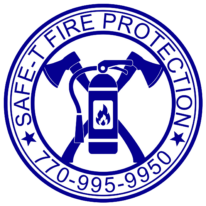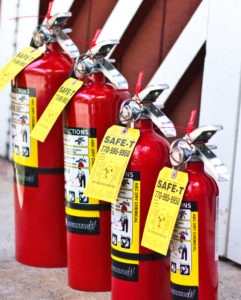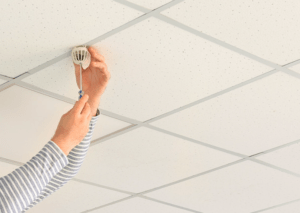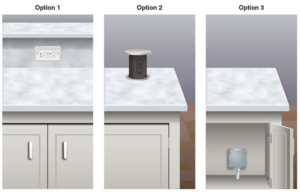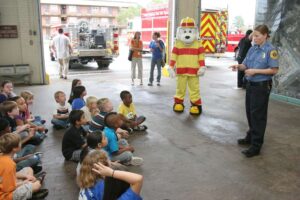How To Prevent Fires in Your Commercial Kitchen
Commercial kitchens are full of hot cooking equipment, cooking oils and greases, cleaning chemicals, and people running frantically through the kitchen. This sort of chaos can easily result in commercial fires, which can be detrimental to your business. If you don’t have the right equipment and commercial fire safety protocols in place, it’s a recipe for disaster. Without commercial kitchen fire safety training, employees won’t know where fire safety equipment is located and the proper procedures for emergencies.
If you own a commercial kitchen, it’s vital that you are prepared for fires, given that they can happen at any moment. Installing the correct equipment, conducting commercial fire safety training, and creating an emergency plan will help ensure that your business is safe and compliant with state fire regulations.
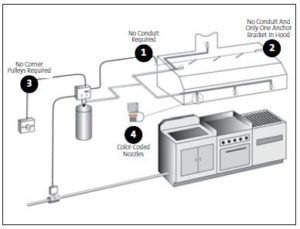
5 Fire Prevention Tips
Install a Fire Suppression System
Fire suppression systems are built into cooking exhaust hoods and are required by code in most states. Since the majority of commercial fires start with cooking equipment, fire suppression systems are very important. They’re the first line of defense against a growing fire. They’ll release chemicals immediately that will extinguish the flames. When this system is in operation, electricity or the gas supply will be cut off. It’s also important that you maintain your fire suppression system. Inspections should happen semi-annually.
Install Fire Extinguishers
Commercial fire extinguishers are a must-have in any business setting. In commercial kitchens, Class K extinguishers are generally used. Class K extinguishers are designed to fight cooking oil fires. This includes fires that start from fats, grease, and oil. Your kitchen should also be stocked with ABC fire extinguishers for fires caused by paper, plastic, or wood. There should be backup fire extinguishers in your commercial kitchen as well.
Have a Maintenance Schedule
Proper maintenance is crucial to keeping a commercial kitchen organized and efficient. All fire safety equipment and sprinkler systems should be inspected and monitored to ensure they’re properly functioning. It can be easy to forget about maintaining commercial fire safety equipment, leaving you with expired equipment that won’t function in an emergency. It’s also important to keep the kitchen free of clutter and debris so that there’s less room for error.
Fire Education in the Workplace
A crucial fire prevention tip is conducting proper training in the workplace. When workers are hired, it can be easy to forget about equipment training during other onboarding procedures. Training on all fire equipment should be mandatory so that new employees understand where these products are and how to use them. Employees should also be taught simple fire safety tips, such as not throwing water on grease fires, not disposing of cigarettes indoors, and knowing where electrical cords are.
Develop an Emergency Plan
For times of emergency, your business needs to have a commercial fire safety plan in place. Employees need to know where they need to go during an emergency, who calls for help, and how fire equipment is used. Everyone should also be on board with the correct procedures in the event of commercial fire emergencies.
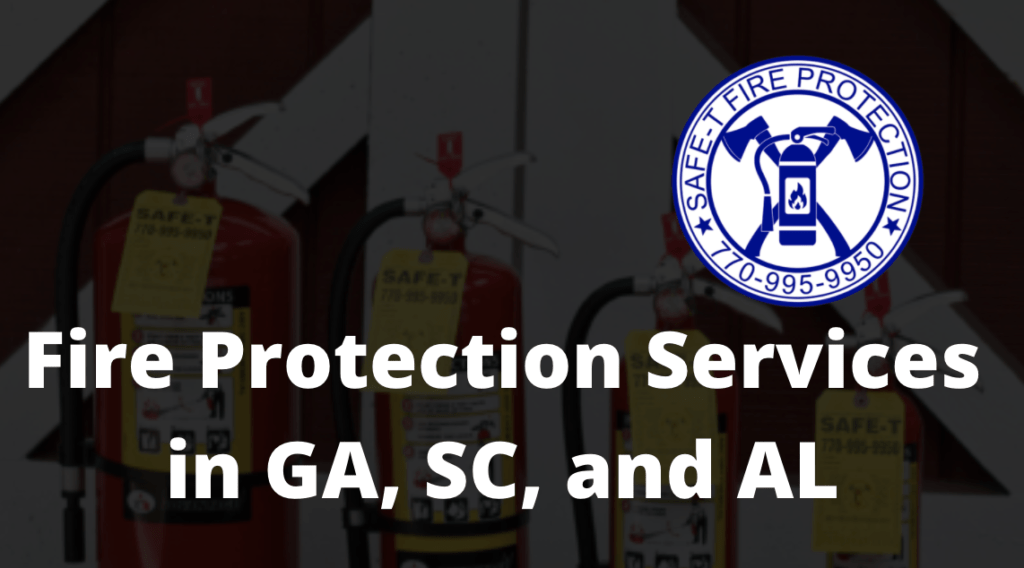
Key Information for Your Commercial Kitchen
Your commercial kitchen must be inspected semi-annually: We understand that during the chaos of business operation, it can be easy to forget about fire equipment and maintenance inspection. Some businesses will only schedule inspections once a year, which is not enough. Because commercial kitchen fire safety is so important, this equipment can’t go a full year without being inspected.
Always turn on the exhaust fan before cooking with oil: Anytime you are using a fryer, whether it be cleaning or cooking, the exhaust fan must be turned on first. If the exhaust fan is not turned on, it can make the suppression system go off, which will make a big mess.
Never block fire alarms: There are times when large equipment or doors will block fire alarms. People do this without a second thought, thinking it will save space. But in the event of a fire, you won’t have a clear path to the fire alarm or may not be able to find it.
Don’t delay fire safety training: With COVID-19, there has been a lot of employee turnover. As businesses spend time training new employees, they may push fire safety to the side, saying they’ll handle it later. Most likely, fire safety training will never happen and your employees will not be prepared to handle equipment properly. Make sure everyone is on the same page about the commercial fire safety plan.
We Install Fire Safety Equipment!
If your business needs a fire suppression system or fire extinguishers installed, we’re your team. We also handle professional fire inspections and can ensure that your business is operating safely. If you want to know more about commercial fire protection, check out this blog! We also have a fire safety page meant to educate you on the different classes of fire and fire prevention strategies.
